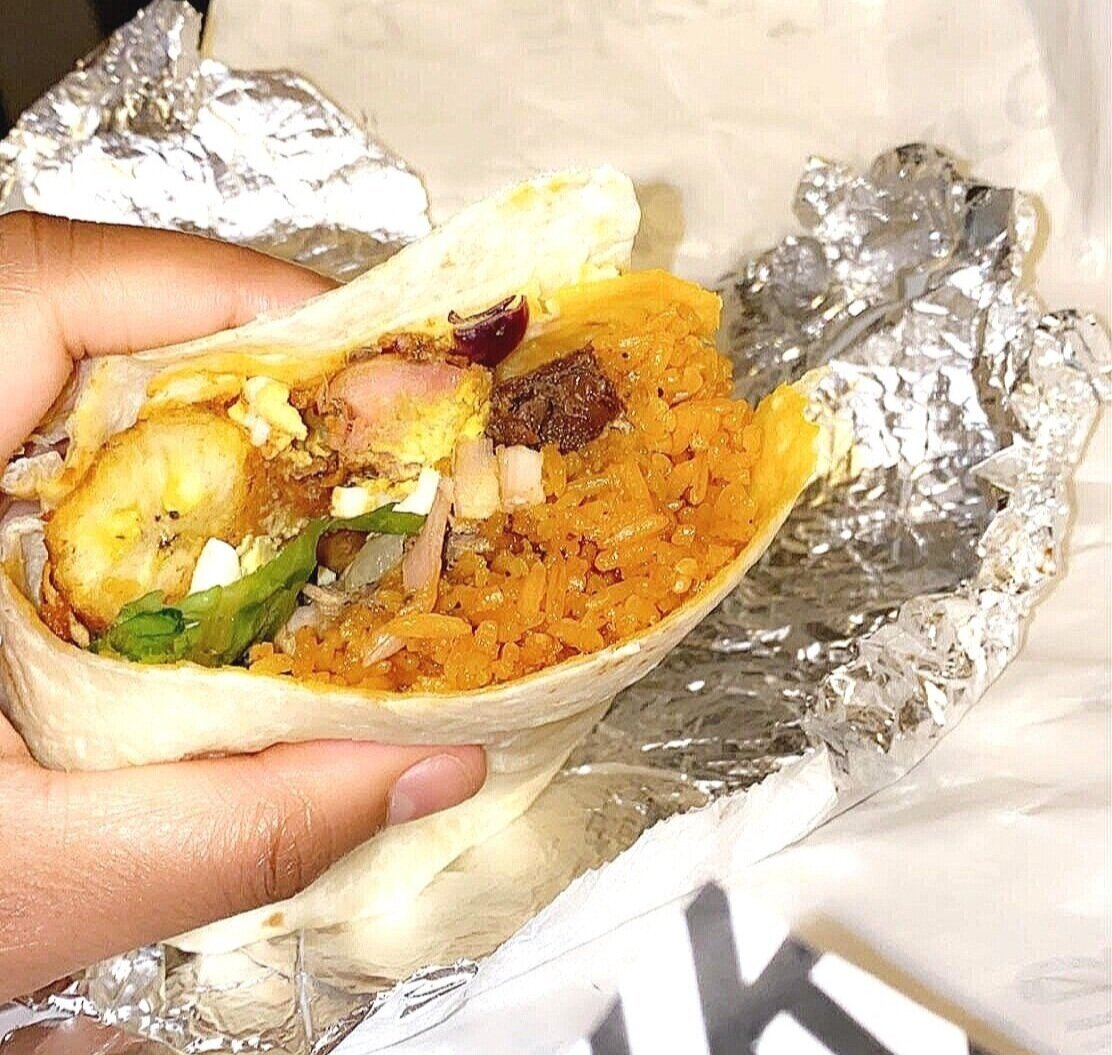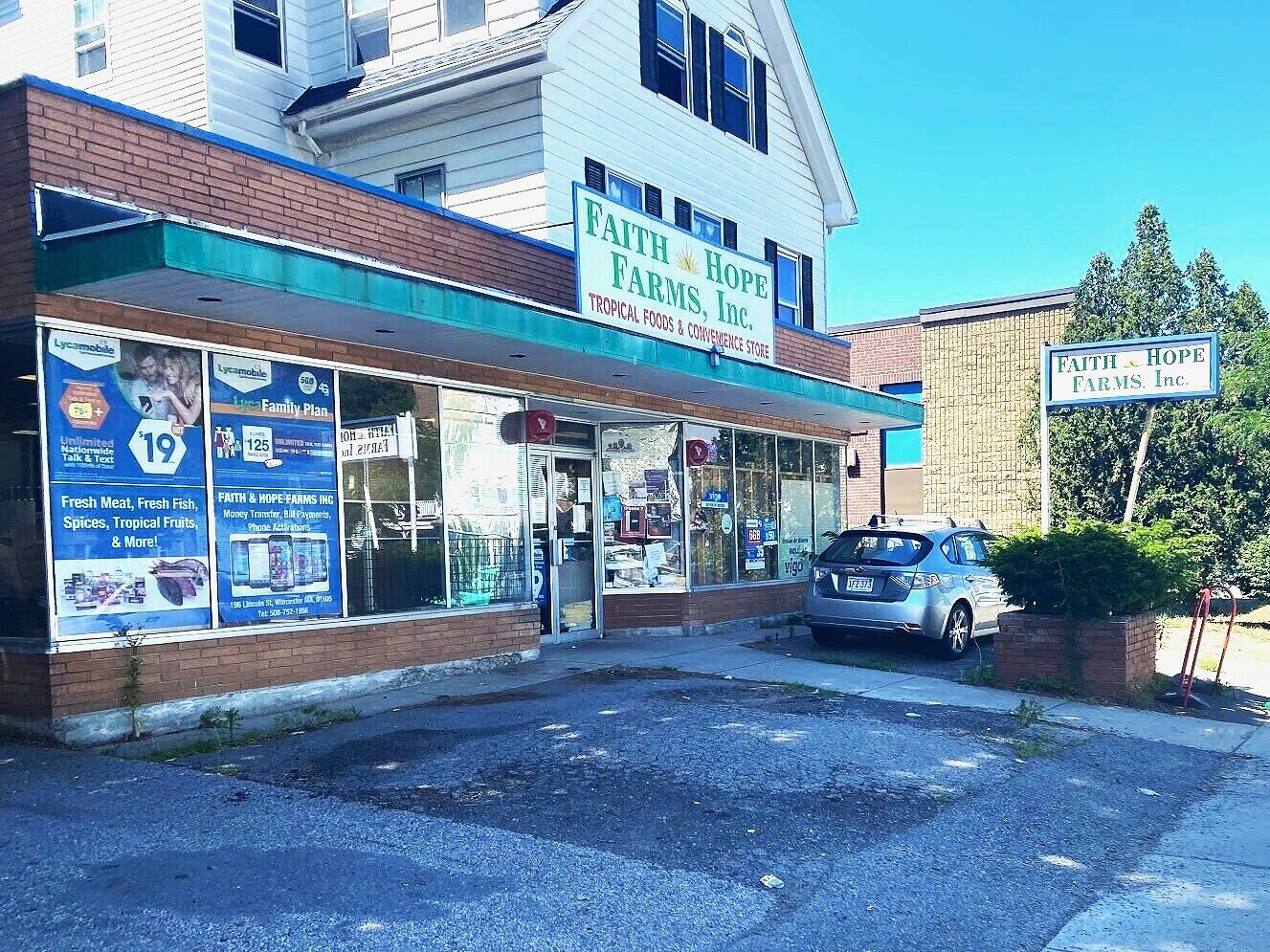Growing Up and Eating in Worcester
When Sienna Ablorh saw people from various cities uplifting their own communities by creating lists of Black-owned restaurants, she was inspired to create her own to include not only restaurants but all Black-owned businesses in Worcester. “I knew so many of my friends who had their own businesses, and I wanted to highlight that,” she said. She asked her friend Dorean Asuako to help.
The list they created now includes over 150 Black-owned businesses in Worcester, including 24 restaurants.
“We made the list by starting with Black-owned businesses we knew off the top of our heads and then asking some friends if they knew of any,” Sienna said. They posted the list on social media, “and we had people emailing or commenting their suggestions of what to add, making it a community effort.”
Both Sienna and Dorean were born and raised in Worcester (though Dorean spent a few young years living in Virginia) and are now seniors at The College of Holy Cross.
We asked them to tell us about their experiences growing up and eating as students in Worcester.
About growing up and eating in Worcester:
SIENNA: Growing up, I was more culturally influenced by my Puerto Rican side. Thus, it has led me to do some of my own self discovery for my Ghanaian side. Learning my father's tongue has been an ongoing task, but food has always been an area I’m quick to learn (code for “I love food”). Being half Puerto Rican and half Ghanaian, I was always eating well! Family parties always ended with me making my to-go plate because the food was just that good, and you just knew your parents were not cooking when you got home!
My Puerto Rican mother would call plantains maduros or platanos depending on the way they were cooked. My Ghanaian father would call them plantains or make a dish called kelewele which is a spicy version of the sweet plantain. Despite this, I call it, “the best side dish for a meal known to date!” Plantains are used in a variety of cultures and dishes and are prepared differently and will always be considered comfort food for me.
DOREAN: With a Ghanaian mother who was (and still is) a “We have food at home” parent, I rarely ate out other than going out to cookouts and other events that had food. As someone who grew up primarily eating cultural dishes, the West African markets in Worcester are what I am most familiar with: spending time trailing my mom down aisles, watching the butcher cut the meat of my mom’s choosing into smaller pieces and emptying the handheld basket of items like bread, yams, a bag of gari [flour made with cassava roots], or yellow or green plantains, onto the countertop for my mom.
Faith N Hope Farms is the market I’m most familiar with. It has been there for as long as I can remember, more than ten years. Taking the WRTA 26 bus after a doctor’s appointment, I would get off and stop by to get one of the Crush sodas in the old-style glass bottles. I would buy a loaf of sweet bread … and if I could, sit and watch whatever Ghanaian or Nigerian movie that played on the TV while my mom and the owners caught up.
A few of their favorite Worcester food businesses:
SIENNA: Recently, the Accra Girls Restaurant opened a sister restaurant called ākra Eatery and Juice bar. Located in the Worcester Public Market towards the back, ākra Eatery offers a contactless menu where you scan the QR code and it opens up a menu below. The menu is easy to follow and simple. What I appreciate the most as I continuously explore my Ghanaian culture are the captions that detail the ingredients or what the dish is. I ended up ordering the jollof wrap. It tasted delicious and I am ready to go back for more! ākra Eatery and Juice Bar is located in the Worcester Public Market.
DOREAN: One of my favorite meals to have for lunch is fried yams with red pepper and chicken. So during the pandemic, I went to Adom Market to buy the ingredients: yams to cut and fry, cassava to make banku for another day and smoked turkey wings (my absolute favorite meat for stews and soups).
I almost squealed in the front of the store when I saw a childhood snack of mine that I hadn’t found in a store since moving to Worcester; roasted peanuts coated in a sweet crispy shell, called “Burger” or Nkatie Burger in Twi [a dialect of the Akan language spoken in southern and central Ghana]. I bought two small bags and almost immediately opened, and finished, one bag before getting home.
SIENNA: With the close proximity to my house, I frequent Jamaica Thymes often. My go-to dish there is a medium plate with rice, jerk chicken, plantains and a beef patty on the side. Unfortunately, I can never get a picture of the food because I am too eager and excited to eat it! The food never disappoints, and I love that plantains can remind me of both of my cultures while also experiencing it with a Jamaican kick.
About being a student in Worcester:
DOREAN: The freedom of living on campus has led me to explore more and more of Worcester each year. The contrast between the number of Ghanaians/Ghanaian-Americans in Worcester and the very small number who are at Holy Cross has made me appreciate staying local. I get to share my culture with my college friends through the best way to get to college students: food. Through the Ghanaian restaurants that have opened up in the past few years, I’ve been able to still enjoy foods that remind of home, right on campus, and introduce my friends to dishes I’ve grown up eating.
SIENNA: I hope that going into my senior year this fall I can use the Black-owned Worcester list as an excellent resource for our fellow Holy Cross members, who always ask where the best places are to go.
About the list:
DOREAN: While working with Sienna to create a directory of Black-owned businesses in Worcester, and wrapping my head around entering my final year of undergrad, I’ve regained an appreciation for living in a city filled with people who come from so many different cultures that allow me to experience various cultures through food. I also get to see and enjoy my own culture through food outside of my household and experience that with others around me, right here in my birthplace. … As a college student, I hope that when students return to the city for classes, our list can be utilized to engage more with Worcester and put money into the community.
SIENNA: The Black-owned business list we’ve created has definitely opened my eyes to all that Worcester has to showcase, but specifically all of my food options. I plan on slowly but surely making my way to all of the restaurants on our list. (Very slowly actually—don’t forget we are broke college students!)
Click below for a list of Black-owned bakers, caterers and restaurants in Worcester.
For a complete list of Black-owned businesses (including markets), check out Sienna and Dorean’s Black-owned Businesses in Worcester List:
A Worcester native and student at The College of the Holy Cross, Sienna Ablorh ‘21 was inspired by recent events surrounding Black lives, the Black Lives Matter Movement and a need to further uplift Black voices and Black businesses. Sienna sought the help of friends, one of which was Dorean Asuako, a Worcester native herself and also a member of the class of 2021 at Holy Cross, who was excited to help and has been on board throughout the entire process. Both Sienna and Dorean hope to spread awareness of all the Black-Owned businesses that can be found right in their own hometown and in their own way, participate in the “reviving” of Worcester that the city is undergoing—per the city’s plans for Worcester 2021. Dorean and Sienna's expectation for their document is for it to be essentially a community effort, making this a working list that these two young Black women will update as frequently as possible.





